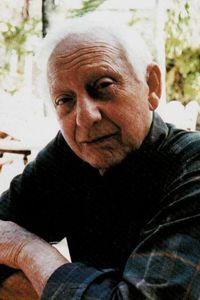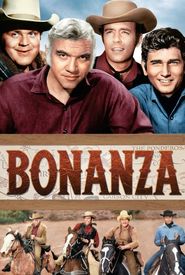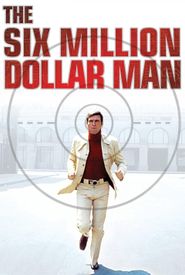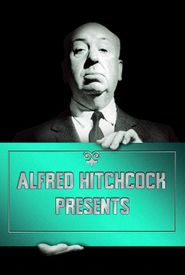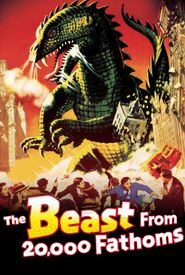Fred Freiberger was born and raised in the Bronx, New York, where he spent his formative years. Prior to his foray into the entertainment industry, he worked in advertising.
During World War II, Freiberger joined the 8th Air Force as a navigator, but was shot down and spent 22 months as a POW in Germany. Upon his repatriation, he briefly attended the Institute of Film at Pace University and eventually made his way to Hollywood, where he used his Air Force back pay to support himself.
Initially, Freiberger hoped to find work as a publicist, but an industry strike forced him to remain unemployed and without funds. During this period, he began writing, managing to sell his first story to Comet Productions, which was owned by Mary Pickford. This was followed by his first science-fiction effort for an anthology TV series, The Clock, in 1949.
Freiberger continued to freelance, co-writing the script for the cult classic The Beast from 20,000 Fathoms in 1953 and developing the original story for the superior outdoor western Garden of Evil, which starred Gary Cooper and Susan Hayward in 1954. Over the next decade, he became one of the most prolific writers of western teleplays in the business, working on popular shows such as Cheyenne, Rawhide, and Laramie.
In 1965, Freiberger made his first significant contribution to science fiction as the producer of The Wild Wild West, for which he was brought in to devise ingenious cliffhangers and off-beat futuristic gadgets. However, he was sacked after ten episodes due to creative clashes with CBS executives who failed to grasp the show's concept.
Despite a planned European vacation, Freiberger rejected an offer to produce Star Trek from the onset in 1966. However, in 1968, he took up the option to produce the show in its final season. By then, the series had been plagued by budgetary cuts, the exodus of top creative talent, and the takeover of Desilu by Paramount, all of which had detrimental effects on the show.
Freiberger often clashed with writers and directors and was criticized for overemphasizing action at the expense of character development. Many people laid blame for the cancellation of Star Trek firmly at his feet, although not everyone, including William Shatner and Robert H. Justman, agreed. Additionally, NBC's decision to re-slot the show to the Friday "hour of death" (10 P.M.) was a significant contributing factor to its demise.
After Star Trek, Freiberger managed to get Space: 1999 picked up for a second season. He created new characters, including dashing Tony Verdeschi and shape-shifting Maya, played by Catherine Schell, in an effort to boost ratings. He also penned three episodes himself under the pseudonym Charles Woodgrove. However, the series did not survive, and Freiberger's subsequent unhappy association with the final season of The Six Million Dollar Man put him again in the public eye as a scapegoat, earning him the unkind sobriquet "the series killer".
The first interracial kiss on U.S. television, between Kirk and Uhura in the episode "Plato's Stepchildren", took place on his watch, although the praise went to Roddenberry, who was not involved in the episode.
